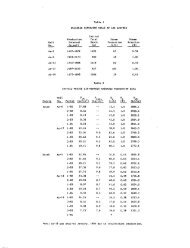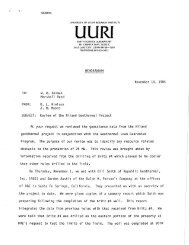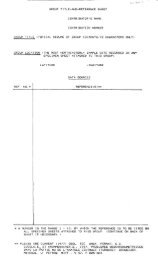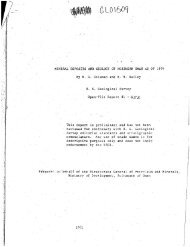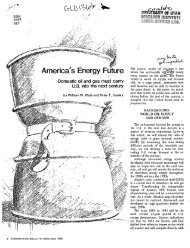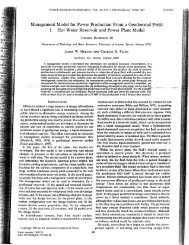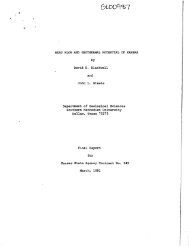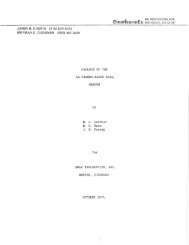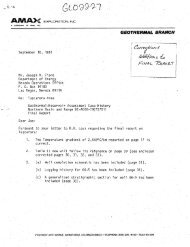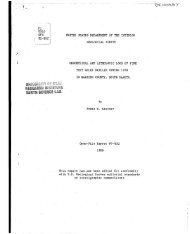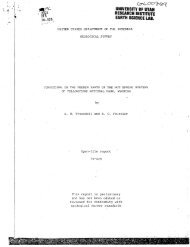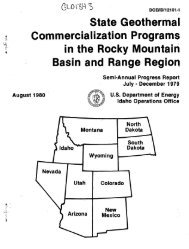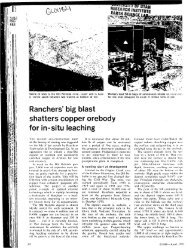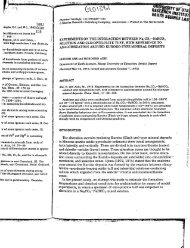"INDUCED POLARIZATION DATA AT ... - University of Utah
"INDUCED POLARIZATION DATA AT ... - University of Utah
"INDUCED POLARIZATION DATA AT ... - University of Utah
Create successful ePaper yourself
Turn your PDF publications into a flip-book with our unique Google optimized e-Paper software.
ABSTRACT<br />
CHU<br />
Both field and laboratory broadband multispectral data have been<br />
gathered in a study <strong>of</strong> IP phenomena at the Roosevelt Hot Springs<br />
geothermal area. The field survey involved two traverses across the<br />
main part <strong>of</strong> the present day hydrothermal system. The laboratory<br />
research gathered data at 25°C, 50°C, and 75°C, on hydrothermally<br />
altered rocks from the hot springs area.<br />
Laboratory data indicate a small IP effect <strong>of</strong> 3 to 23 mr at low<br />
frequencies (0.004 Hz). High frequency (10 3 Hz) IP data ranged from 20<br />
to 100 mr. The IP effect is frequency dependent, and is not affected<br />
markedly by moderate changes in temperature; it is also dependent upon<br />
the quantities <strong>of</strong> pyrite and clay minerals. Pyrite affects the phase<br />
spectrum well above 1 Hz, and its effect is different from that <strong>of</strong><br />
polarizable clays.<br />
The field data at the higher frequencies show both positive and<br />
negative phase values, which can be explained by electromagnetic<br />
coupling. Extrapolated phase data reveal a small anomalous region <strong>of</strong> 20<br />
to 34 mr along one <strong>of</strong> the pr<strong>of</strong>iles; the majority <strong>of</strong> the data ranged from<br />
7 to 15 mr.<br />
The laboratory and field data indicate only a small IP effect over<br />
the hydrothermal system; it could be considered as background and hence<br />
<strong>of</strong> no consequence. There seems to be no large scale delineation <strong>of</strong> the<br />
geothermal field.



